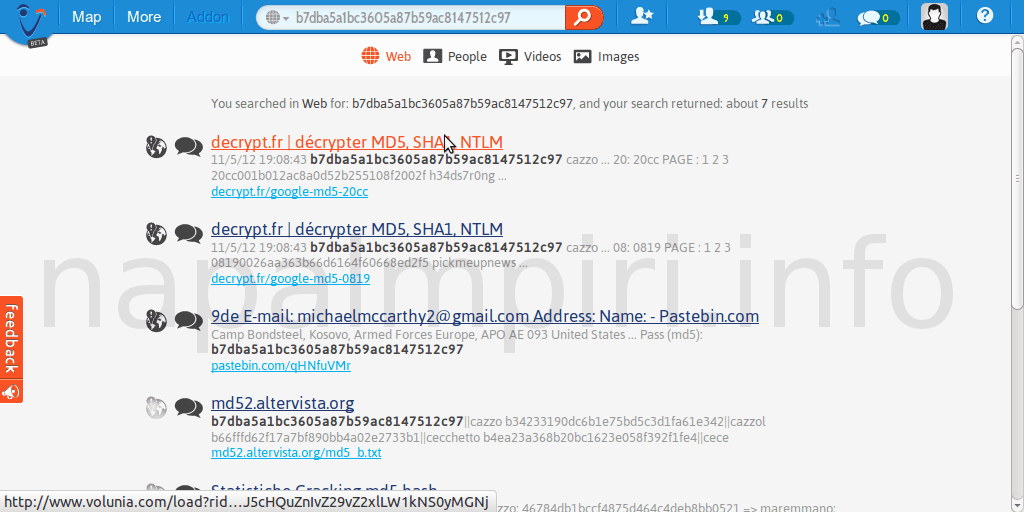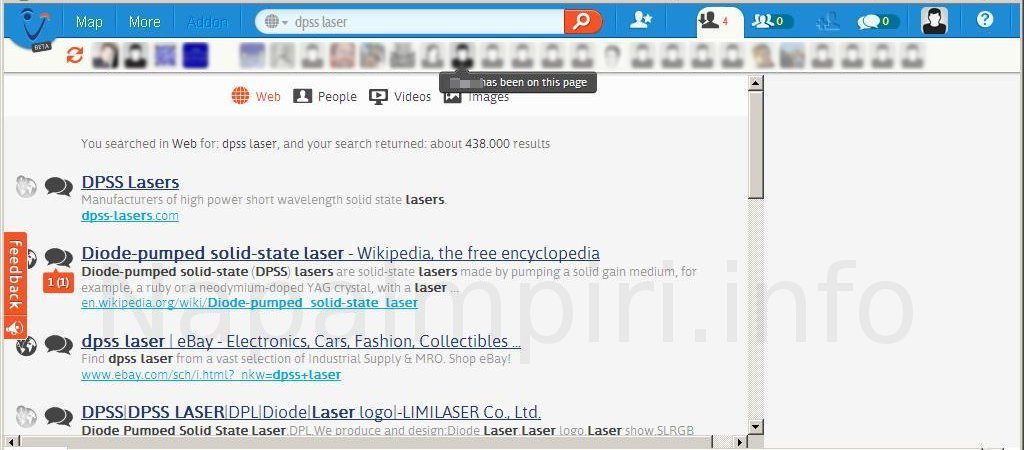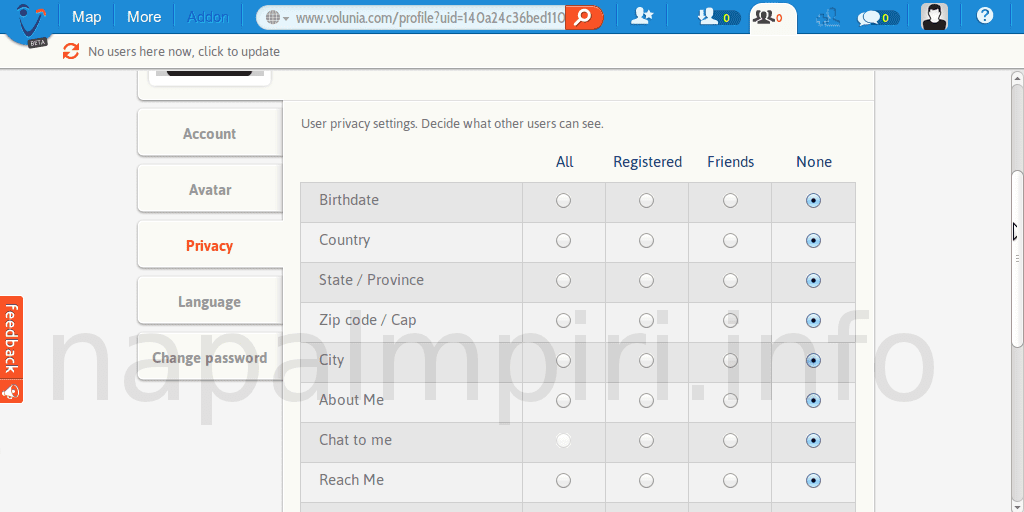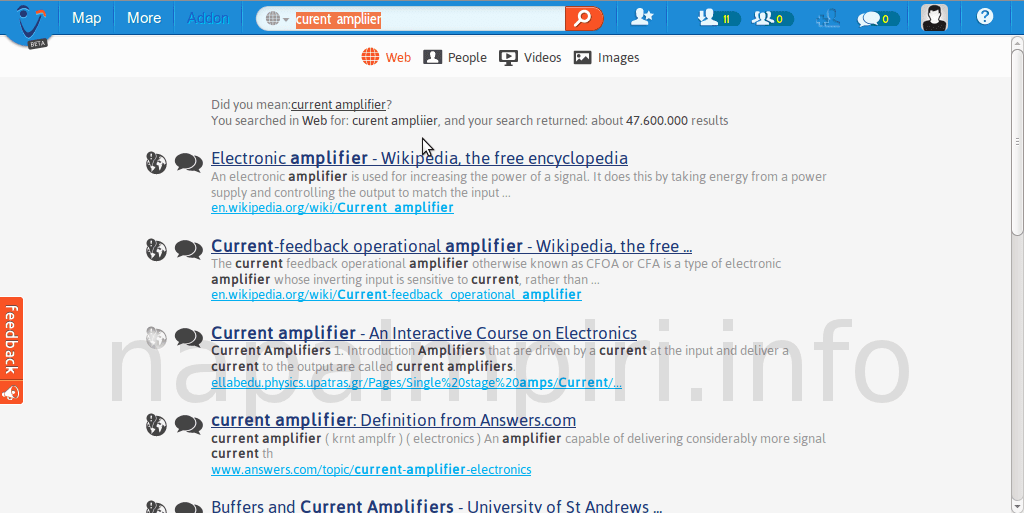Whom the gods wish to destroy, they first call promising.
(Cyril Connolly, Enemies of Promise)
The Italian social search engine Volunia by Massimo Marchiori raised eyebrows during this launch of February 2012: some considered it stillborn. The usual ill-fated comparison (e.g “the Google killer”) fuelled the debate further.
08/06/2012 Update: it seems there are some problems…read at bottom
I understand, as some 2.0 journalists should, that dethroning Google from its dominant market position takes more that passion and a good idea. Bing/Microsoft learned this the hard way, after pouring millions into their search engine. People are so accustomed to Google feel, look, and also to its way of working that switching feels so odd. The google ecosystem of Gmail, Google docs, ecc encourages the user into staying logged in.
Back in the Altavista times, search engines didn’t work as well as now. Having a relevant result from a search wasn’t so obvious. So search engines were ranked and chosen by people basically on their effectiveness. You searched for ‘ground loop’ and you expected to find electrical stuff, not ‘fruit loop’, nor a plethora of website having ‘ground loop’ in keywords but presenting hardcore stuff.
Modern search engines are more a distributed knowledge source. People use them to infer ideas, to remember forgotten things, to translate, to brute force hashes, to search for exploitable servers.
If I search for ‘ground loop’, most modern search engines understand I’m talking about electric current, and will present pages in a coherent context and ads, by the way.
Google is so good in all this a doubt a serious contender can think to topple it without some really bright idea: we have seen all this with Cuil(wikipedia.org) and we suffered already through it.
Volunia presented a different angle, long time before Bing and Google search discovered their bright social side. I personally despise all this being 360′ social, but Volunia idea was fond.
As a Volunia power user, I had the opportunity of looking through it from the first steps on. I must say earlier search experience (February 2012) was disappointing. Indexing was clearly not completed and results were scarce. Interface was a nightmare, feeling so 1999. The SimCity stuff, a bright idea otherwise, was orrid. The Iframe implementation, so 1.0.
After some months I now see things are changing, in well.
Premise: judging a search engine by throwing some random queries is not a good metric. But I suppose the random user doesn’t really care what search engine is most efficient, or faster. The random user just look at how it feels. Volunia finally feels right. Results have improved a lot, both in quality and volume. Context is quite always right.
Resistance to typos is already good, and it’s improving.
It works fine also with no-meaning words.
As nearly everyone, I have some topic I research a bit often.
Volunia turned out some original results Google didn’t prominently feature. Way to go.

The social stuff is weird. I realize that meeting people that are searching for the same stuff you do can be useful, because it could turn into an human social engine, with people interchanging links and discussing about the topic at hand. The issue is there’s still no prominent button to disable the feature. What if you search for something potentially embarrassing? Want to discuss crab-louses with a guy that asks you for an at-home solution? Below you can see that an user has been on a specific search (I choose a generic name on purpose, but you can see also common names (greyed out for privacy here)

I feel that the unspoken rule for a privacy control nowadays is: if it’s not prominent, it’s like it’s not there at all. Digging throu menus is not what people like to do. Answering boring questions? Understand privacy group, exclusions? Naaah.
A social search engine needs in my humble opinion a prominently placed big red button to disable at least temporarily ‘sociality’.

Social networks entries now turns out in search result, but they are still a bit random.
At least but not a last, index refresh seems recent, even with a suboptimal query (Modena was near but not directly affected by yesterday earthquake)

Final tough: the hard work they did starts paying now. The feel, to me is better than Bing’s. I find what expect to find. No weird results, even with suboptimal queries. Quantity is still limited, as Volunia hardware resources are, comparing with the other players in the search market. Good knows what could do with Bing infrastrure running under the hood. So my special, profane advice to Microsoft is: buy Volunia, integrate with the good of Bing, and keep working. It’s like an American car running an Italian engine, and other think the approach could work.
Update: it seems that Massimo Marchiori is leaving Volunia after some clashes with the management

